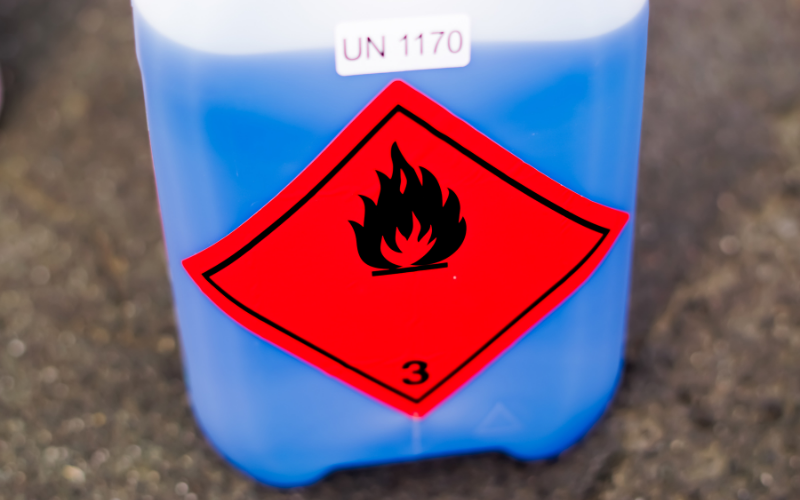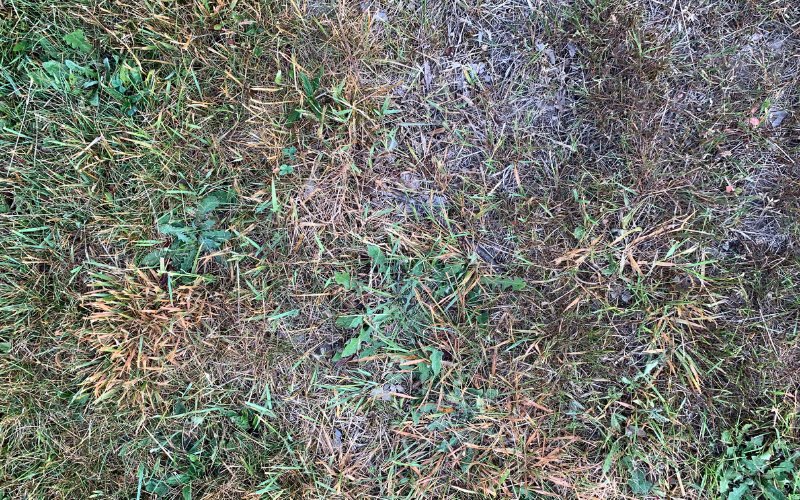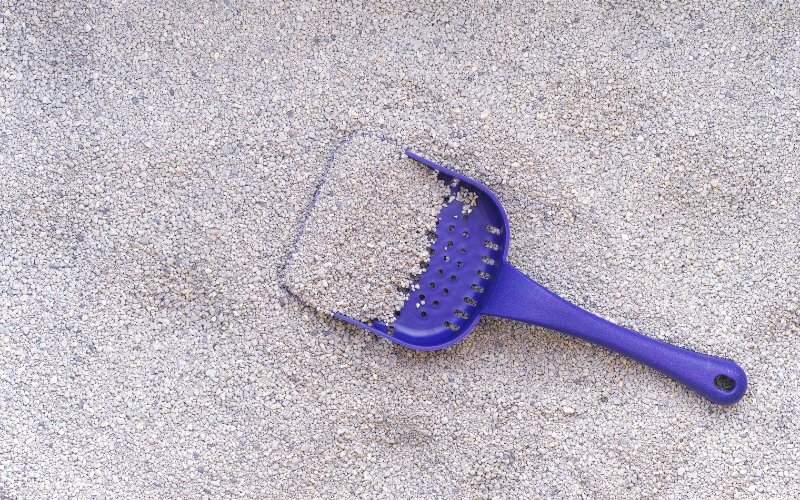Whether by accident or on purpose, it doesn’t take long to learn what happens if you dump ethylene glycol-based antifreeze on the ground. Grass and plants wither in hours if they touch even a thimble full of the stuff. Nearby trees may begin to lose leaves days later if a bottle is emptied near them. Antifreeze and its typical active ingredient, ethylene glycol, is devastating stuff. Propylene glycol antifreeze, however, is another story.

Will Antifreeze Kill Grass?
Yes, antifreeze will kill grass very quickly if it has propylene glycol in it. Not only that but antifreeze can even kill weeds, vines, plants, shrubs, and well-established trees. Both propylene glycol and ethylene glycol antifreeze will kill grass in certain quantities. However, propylene glycol is generally diluted to the point where the effects are barely noticeable.
Will Diluted Antifreeze Kill Grass?
Yes, diluted antifreeze will kill grass, especially if the antifreeze is ethylene glycol-based. Propylene glycol antifreeze is less potent and, if well-diluted, may not be noticeably harmful to grass or soil.
How Does Antifreeze Kill Grass and Other Plant Life?
There is one of two primary chemicals in most varieties of antifreeze. Either you have the newer propylene glycol or the older ethylene glycol variety. Ethylene glycol poisons anything it comes into contact with, this includes people, plants, and animals. Propylene glycol isn’t completely safe and can, in high concentrations, still cause cases of poisoning but it is a much milder substance and is typically sold diluted in a way that its effects aren’t noticeable.
Related Article: What Kills Grass?

Can You Save Grass After an Antifreeze Spill?
With quick action and care, it’s possible to save your lawn after an antifreeze spill. However, it’s likely you will still end up with a damaged patch for weeks if not months after the spill. However, trying to save the current patch of lawn is often a better option than trying to cut it up and replace it. Though the damaged grass may take as many as 8 weeks to recover, new seeds or seedlings will not survive if any amount of ethylene glycol remains in the soil.
How Do You Clean Up Antifreeze on a Lawn?
As soon as there is an antifreeze spill, the first thing you should do after making sure none of the antifreeze is on your skin or splashed on your clothes is locate an absorbent substance. Ideally, you will have some extra cat litter, sand, baking soda, oil dry, sweeping compound, or another absorbent material on hand. Place this material over the spill and its perimeter.
Next, using rags, disposable towels, or layers of newspaper you may lightly press the material down to help it absorb the spill. Take care not to get any antifreeze on your skin and wear gloves and boots if possible.
After the material has had a chance to absorb the spill for at least 30 minutes, carefully scoop the material into an enclosed garbage container. Allow the spill to dry, keeping children and pets away. Do not rinse the area or try to dilute the antifreeze. The closer it is to the surface, the faster it should break down and dissipate.

Will Any Antifreeze Kill Grass?
There are a handful of different antifreeze formulations on the market. Some are meant to be used in the common car, others are for heavier vehicles such as an RV or motor home. No matter if you’re wondering, “Will car antifreeze kill grass?” or if you happen to need to know the answer to, “Will RV antifreeze kill grass?” the answer is always yes if the antifreeze is ethylene or ethanol-based. Even if the plant isn’t killed right away, it will be heavily damaged and take months to recover even if the damage isn’t immediately apparent.
The Difference Between Antifreeze and “Plant Antifreeze”
There are a few newer types of products on the market referring to themselves as a form of “plant antifreeze”. The purpose of these products is to help certain plants that are meant for warmer climates grow in colder climates for an additional 1 to 2 months every year or in the case of a cold snap.
These products are rarely used on lawns as most lawn grass is only ever planted in the climate in which it will live out its life. If plant antifreeze is used on a lawn, however, it will not hurt that lawn. It won’t provide any other benefits, either.
How Do You Repair Soil After an Antifreeze Spill?
Antifreeze soil contamination is no joke. According to the CDC, ethylene glycol-based antifreeze should break down in the soil and dissipate in less than 2 months. This timeline may be after periods of heavy rain. Propylene glycol-based antifreeze should take slightly less time to break down.
Antifreeze Can Be Deadly for Your Lawn- But It’s Not Hopeless
Does antifreeze kill grass? Yes, ethanol-based antifreeze will easily kill grass and contaminate your lawn for months after a spill. Even diluted, antifreeze should never be used as a herbicide or a way to control the plants growing through the cracks in a sidewalk or edging. However, even given how devastating ethanol-based antifreeze can be after a spill, with proper care it can be cleaned up and things will be back to healthy before you know it (in about 2 months).


I have yucca plants at the side of my house. I have dug up and sawed off as much of the roots as possible, then I hammered many, many holes into the remaining visible roots and surrounding areas using a 10-12 inch screwdriver, I then sprayed tons (4 gallons total) of ortho ground clear and diesel fuel into all the holes, roots and surrounding ground. It has been 5 days, the exposed roots are soft and dead but the deeper portion of the root is still white and juicy. What can I do to KILL all roots???? I can not dig any deeper as they are at the foundation of my house. PLEASE, PLEASE HELP!!!
Hi Renee,
Well, it looks like you have really gone to town trying to get rid of your yucca. If you can’t get down to the bottom of the root and remove the whole plant, then I suggest using salt. Just regular table salt. Get hold of several pounds of table salt and pour it over the plant so that it can work into the holes you made. As the salt washes down to the lower roots it should start to kill them. As I’m sure you’re already aware, it’s going to take some time.
I hope this helps!
Tom.